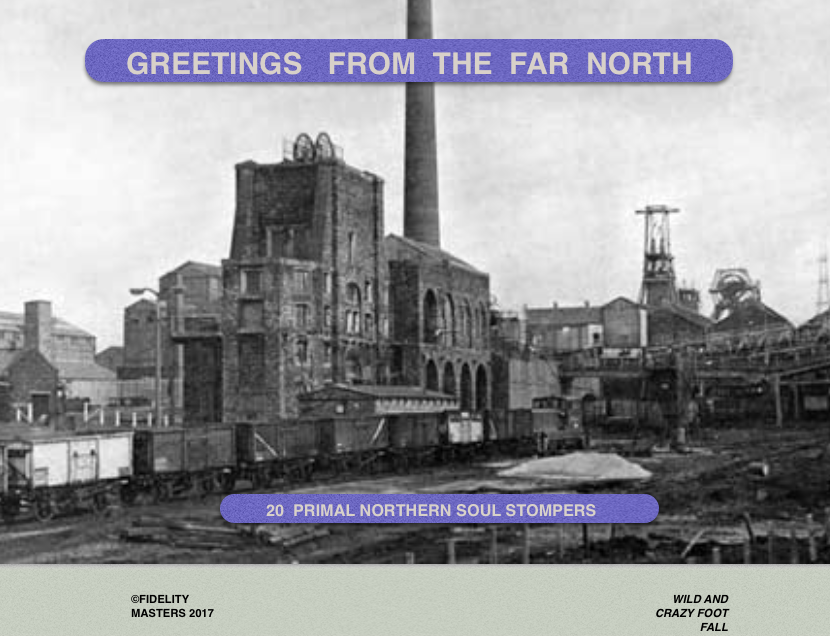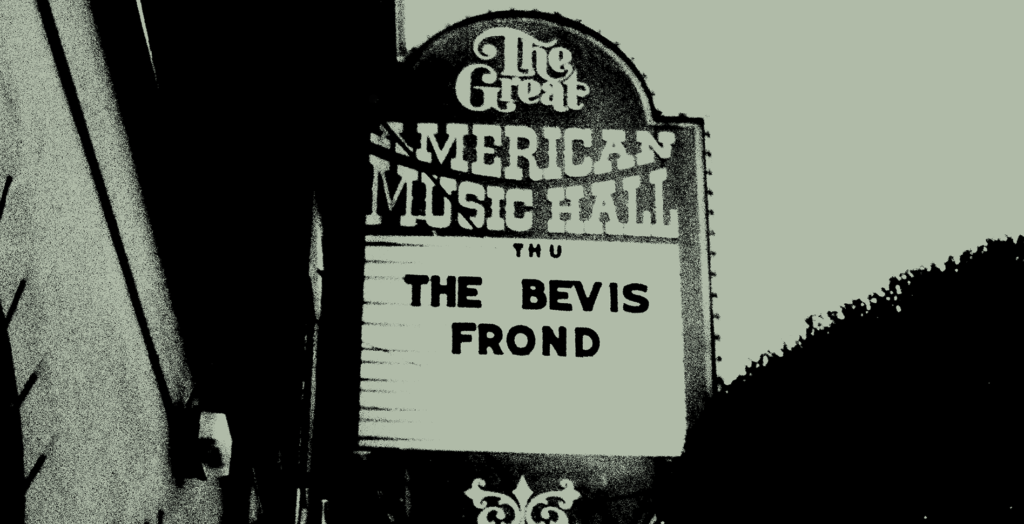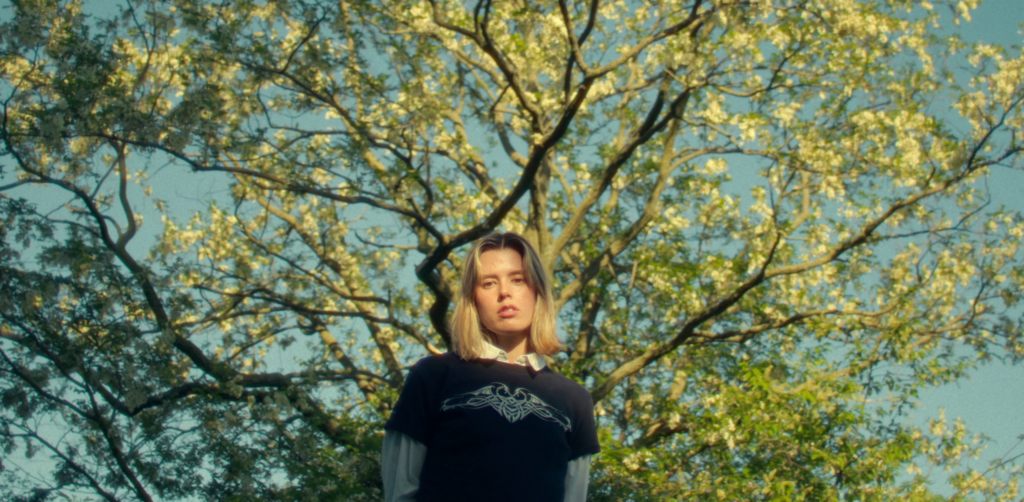Feet Don’t Fail Me Now! A 20 track northern soul compilation on Fidelity
The most recent wave of interest in northern soul has come about through broadsheet articles, films and most recently a BBC arts show documentary that revealed a new generation of northern kids embracing the traditions of all night dancing, baggy trousers and life-threatening dance moves. It’s chin stroking stuff.
Meanwhile, the scene around this unique musical sound has continued to blossom in the strangest of places; at sporadic all-dayers, weekends at holiday camps, community halls in far off towns and in the most unlikely of venues around the UK, where original participants still thrill to the opening bars of the anthems that filled dancefloors from The Wigan Casino and The Catacombs to The Scene Club or the pier at Cleethorpes. There’s something about swirling strings, a hard nosed backbeat and soulful voice that transcends genres and generations. These are songs that came to the UK on seven-inch 45s from places all over the States that had only ever been seen by the tankful dancers in news clips. It was a different place, a timeless moment, all captured in less than three minutes of euphoria.
Little Eva’s ‘Keep Your Hands Off My Baby’ was her Carole King and Gerry Goffin-penned follow up to the pop monster hit ‘The Loco-motion’. Later covered by The Beatles and a host of others, it could never follow that global phenomena but it did reach number 12 in the charts before fading to obscurity and heading directly up north to be loved still now.
The Contours first single for Gordy, after two at Motown, became hugely influential in the north of England and not just in the clubs. A staple of British beat groups including The Dave Clark Five, Brian Poole And Tremeloes and The Hollies, it was later sold back to its country of origin and covered by shade-wearing garage band The Sonics and Johnny Thunders’ Heartbreakers but, it’s the original Contours’ version that shook up the dancefloors of the north. The band would go on to be regulars on the northern scene with ‘First I Look At The Purse’ and the thunderous stomper ‘Just A Little Misunderstanding’. Label mate Mary Wells also has had a long romance with northern dancefloors and her gorgeous ‘ You Beat Me To The Punch’ was a regular spin at Manchester’s Twisted Wheel Club in the ‘60s before she became a pop chart commodity with the wonderful ‘My Guy’.
‘Mojo Hannah’ was Henry Lumpkin’s last single for Motown, the third from his short-lived tenure, a sassy piece of storytelling from the deep south, revolving around the voodoo possibilities of the lady in question, with a snappy, rattling Ric-Tic drum sound and backing vocals from The Love-Tones behind a nice rasping, growl of a vocal. Charles Sheffield continues the hoodoo vibe with a gorgeous piece of southern soul, a sensual, shimmering tune from the mysterious Sheffield who came to prominence with the Clarence Garlow Band, produced a few sides as ‘Mad Dog’ Sheffield and has a delivery that gets right under your skin. Sheffield had a couple of other northern-paced singles but in the true style of the genre, he disappeared and little is known about him. By contrast, Barbara Dane is very well known in a number of music-related circles. ‘I’m On My Way’ is a quasi-religious dancer that came amid her other eclectic output of folk, blues and jazz, plus the great album that she did with The Chambers Brothers some years later. Produced by Lee Hazelwood, it strides with great purpose over a bracing bass line, a truly uplifting, spiritual performance. Like Dane, Mel Torme was similarly eclectic, a swing singer and actor, he picked up on Bob Dorough’s infectious ‘Comin’ Home Baby!’ in 1962 and added a laidback vocal to the bracing bass line which took the tune straight to the dancefloor. Sadly, the album of the same name doesn’t repeat the process but that’s often the way, there’s just that one moment that works on a talcum-coated dancefloor.
Amy Winehouse muse, Etta James’ career had en eclectic hue too, touching RnB, blues, soul and rock ‘n’ roll but throughout it’s journey into pop success, it was her voice that conquered all. On ‘Seven Day Fool’ she drives home her tale of domestic ill will with real passion. Over a rhythm that’s reminiscent of Charles Sheffield’s ‘Voodoo Working’, her submissive story has more than enough attitude to let you know that she’s going to somehow get her own back even if she admits “she really loves you”. Etta James’ vocal delivery is of course magnificent and her dexterity is well celebrated, however the under valued Tiny Topsy is another story. She smoulders, she shudders, she virtually vibrates with pent up emotion on ‘Just A Little Bit’ one of far too few sides that exist from her time at Federal Records that have led to Robert Plant acclaiming her as one of the greats.
Finally, here, we have an instrumental belter from seasoned jazz, soul and blues player Phil Upchurch. ‘You Can’t Sit Down – Part One’ features his driving guitar with a blend of sax and organ that makes for a compulsive toe tapper. The Combo shriek and Phil breaks loose on 37 seconds into a solid groove, the blues brought into focus at what sounds like the greatest party ever.
As is the way with northern soul facts are invariably hard to find about a lot of the artists. They arrived, produced in some cases just one single then disappeared or changed their name or got a proper job. In the States in the 1950s and ‘60s there were so many small labels that instant obscurity or overnight success was always a possibility. Betty O’Brien mustered just three singles over three years from 1961. Her debut ‘She’ll Be Gone’ was followed by her take on ‘Money Honey’, but it’s the silky sweet strings on ‘She’ll Be Gone’ and Betty’s hip vocal parlay that adds a cool vibe to the proceedings and makes for a great 45. Jeanette ‘Baby’ Washington goes for the string embellishments too on her sumptuous ‘Let Love Go By’, which was part of the popcorn and northern soul sound of The Scene Club in London in the early 1960s. With just two singles under that name – and actually born Justine Washington – ‘Baby’ Washington’s career peaked a year later with ‘That’s How Heartaches Are Made’. LaBrenda Ben And The Beljeans didn’t have such good luck. ‘The Chaperone’ was the flipside of ‘The Camel’, a Motown song that had several guises, one of which was by The Vandellas prior to Martha Reeves fronting the group. Written by their producer George Fowler, ‘The Chaperone’ starts its story on a classic snare roll and heads off on the backbeat for a fantastic piece of brooding soul introspection.
Timi Yuro would hit big on the northern scene with the blue-eyed classic ‘Hurt’ but the triangle-jangling drama of ‘What’s A Matter Baby’, while retaining a certain rock ‘n’ roll/girl group charm, has those booming drums propelling it into a slow emotional shuffle. Prince Conley’s ‘I’m Going Home’ was the flipside of ‘All The Way’ and contains all the elements of a classic soul ballad, horn stabs, an organ solo and Conley’s tortured vocal which is punctuated by a wandering guitar riff from Steve Cropper on his first session in Memphis. Cropper was also part of The Mar-Keys, a flexible instrumental outfit who had hits in their own right with ‘Last Night’ and ‘Popeye Stroll’ among others. In 1962 they released ‘Sack O’ Woe’ as the B side of ‘About Noon’, eventually flipping it to an A-side with ‘Sailor Man Waltz’ on the reverse. An organ led finger popper, it’s perfectly complimented here by James Booker’s slap snare groover ‘Smacksie’, an early side from the versatile session player who would shape much of the New Orleans RnB and soul sounds. Fellow New Orleans resident Ernie K Doe had hit big in 1961 with the pop oriented ‘Mother In Law’, a year on and his ‘A Certain Girl’ wouldn’t reap the same kind of success but it became a regular at Manchester’s Twisted Wheel club finding its way into the history of northern soul.
If Ernie and Booker became part of the creation of early soul music, other had a fleeting effect but disappeared all too quickly. Carl Lester And The Showstoppers’ ‘When You See Me Hurt’ boasts a haunting atmosphere on a perfect two minutes and 20 seconds that’s just staggering. Little is known about the band who seem to have rematerialized in part as The Rivingtons of ‘Papa Oom Mow Mow’ fame soon after. Similarly The Fabulous Playboys – whose ‘Honkey Tonk Woman’ rolls around a funky guitar that sounds ten years ahead of its time – were short lived changing their name to The Falcons in 1963 when the original Falcons’ line up lost Eddie Floyd and Wilson Pickett departed.
Like most tales of northern soul, it’s a complicated set of stories of people moving from one place to another, one band to another and one label to another. At its heart, the more obscure and confusing the story the better but, more importantly, the more potent the record and the more evocative the dance groove – along with a certain degree of rarity, and each three minute symphony becomes absolutely priceless. Find it all over the place – Enjoy!
Track List
01 – Barbara Dane – I’m On My Way
02 – Little Eva – Keep Your Hands Off My Baby
03 – The Contours – Do You Love Me
04 – Tiny Topsy – Just A Little Bit
05 – Mary Wells – You Beat Me To The Punch
06 – Henry Lumpkin – Mojo Hannah
07 – Charles Sheffield – It’s Your Voo Doo Working
08 – Etta James – Seven Day Fool
09 – Phil Upchurch – You Can’t Sit Down – Part One
10 – Mel Torme – Comin’ Home Baby!
11 – LaBrenda Ben And The Beljeans – The Chaperone
12 – Jeanette _Baby_ Washington – Let Love Go By
13 – James Booker – Smacksie
14 – The Fabulous Playboys – Honkey Tonk Woman
15 – Carl Lester & The Showstoppers – When You See Me Hurt
16 – Prince Conley – I’m Going Home
17 – The Mar-Keys – Sack O’ Woe
18 – Ernie K Doe – A Certain Girl
19 – Timi Yuro – What’s A Matter Baby (Is It Hurting You)
20 – Betty O’Brien – She’ll Be Gone




